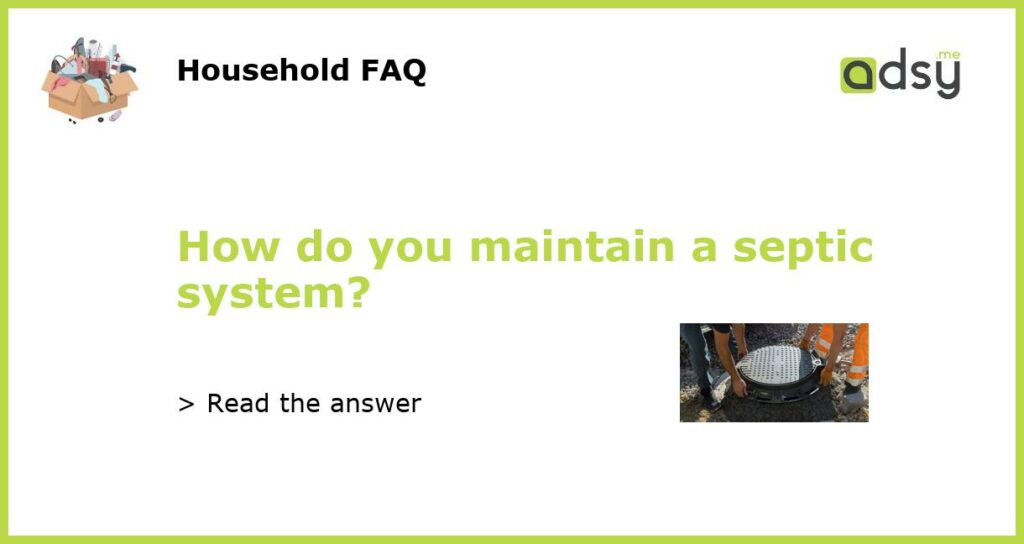Regular Pumping
One of the most important steps in maintaining a septic system is regular pumping. Over time, solid waste and sludge will accumulate in the septic tank, reducing its capacity and effectiveness. It is recommended to have a septic tank pumped every 3-5 years, depending on the size of your household and the usage of water. Regular pumping will help prevent backups, odors, and potential damage to the system.
Proper Use of Water
Another key aspect of septic system maintenance is proper use of water. Excessive water usage can overwhelm the system and lead to premature failure. It is important to be mindful of water consumption and avoid activities that could cause excessive water flow into the system. This includes avoiding long showers, running multiple appliances simultaneously, and fixing any leaks or dripping faucets promptly.
Avoid Flushing Harmful Substances
To maintain a septic system, it is essential to avoid flushing harmful substances down the drain. These substances can disrupt the balance of bacteria in the septic tank and lead to system failure. Examples of things to avoid flushing include grease, oils, chemicals, medications, and non-biodegradable items. Proper disposal methods should be followed for these substances to prevent damage to the septic system.
Be Mindful of Landscaping
When maintaining a septic system, it is important to be mindful of landscaping and its impact on the system. The area above the septic tank and drainfield should be kept clear of trees, shrubs, and large plants with deep roots. These roots can intrude into the septic system, causing blockages and damage. Additionally, heavy equipment should not be placed or driven over the septic system as it can compact the soil and disrupt the system’s function.
Regular Inspections
Regular inspections by a professional are a critical part of septic system maintenance. An experienced septic technician can identify potential issues before they become major problems. They will check for leaks, blockages, and signs of system failure. Inspections should be conducted every 1-3 years, depending on the age and condition of the septic system. Regular inspections can help catch problems early and prolong the life of the septic system.

